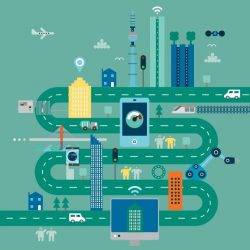September 18, 2018
Employees often too busy keeping up with workloads to innovate

The majority of workers say their workplace regularly asks them to innovate, but a full 65 percent say they’re so swamped with day-to-day work that they don’t have time to think about the future, a new report by Workfront claims. Yet their work remains important to employees, as over half (57 percent) says what they do matters to them personally. The report also found that UK workers rate their own contributions higher than those of their colleagues. On average, most workers scored their productivity at 7.84/10, compared with 7.05 for co-workers and 6.28 for company leadership. Most do believe though that automation will boost personal productivity, as seventy-seven percent thought that the rise of automation will help people and teams think of work in new and innovative ways. There are concerns too regarding too many time wasting activities, with staff spending only 39 per cent of their workday on their primary tasks. Emails and pointless meetings topped the list of things that keep knowledge workers from getting work done.

































September 18, 2018
Building a culture of creativity that unites the physical and digital workplace
by Serena Borghero • Comment, Technology, Workplace design
(more…)